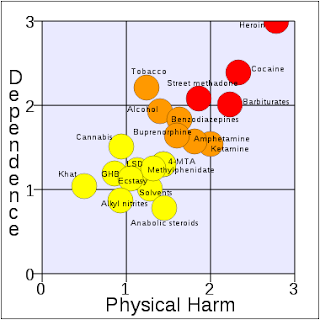 Christian Perring of Dowling College, who edits the helpful "Metapsychology Online Reviews" site, presented an interesting paper at Cambridge Hospital, MA last week about moral responsibility of addicts and others who may not have full control of their harmful actions.
Christian Perring of Dowling College, who edits the helpful "Metapsychology Online Reviews" site, presented an interesting paper at Cambridge Hospital, MA last week about moral responsibility of addicts and others who may not have full control of their harmful actions. The thrust of the argument was that addicts can be morally blameworthy for their harmful behaviors even if they were compelled by the addiction. The rationale was that the addict behaves in a way that he knows will cause harm. The relationship, then is damaged, and the person hurt feels blame towards the person who has acted harmfully. The addict, or the mentally ill person, is still blameworthy for their actions because 1) the person knew that the action would harm the other person and 2) they performed the action nonetheless.
The reaction to this conclusion was surprisingly receptive. However, as the issue was pushed, it seems that there was more of a gradient of blameworthiness. For instance, someone who performs a malicious act purely for malice is very blameworthy. On the other end of the spectrum, the epileptic who happens to hit someone is not blameworthy at all, because he had no intention of performing the action.
The reaction to this conclusion was surprisingly receptive. However, as the issue was pushed, it seems that there was more of a gradient of blameworthiness. For instance, someone who performs a malicious act purely for malice is very blameworthy. On the other end of the spectrum, the epileptic who happens to hit someone is not blameworthy at all, because he had no intention of performing the action.


